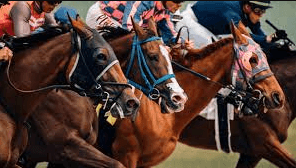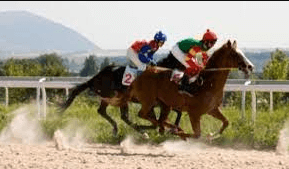What Factors Affect The Performance Of Thoroughbred Horses?

Thoroughbred horse racing is a highly competitive and exhilarating sport that captivates audiences around the world. In order to understand the factors that affect the performance of these magnificent creatures, it is essential to delve into various aspects such as genetic makeup and breeding, training and conditioning, as well as nutrition and health.
By examining these factors through an objective and research-oriented lens, we can gain valuable insights into how to optimize the performance of thoroughbred horses.
The genetic makeup of a thoroughbred horse plays a crucial role in determining its athletic abilities on the race track. Breeding practices aim to produce offspring with desirable traits such as speed, endurance, agility, and competitiveness. Through careful selection of superior stallions and mares with proven track records, breeders strive to maximize the likelihood of producing successful racehorses. Extensive research has shown that certain genes are associated with specific athletic traits in horses. Understanding these genetic markers enables breeders to make informed decisions when selecting mating pairs, ultimately influencing the performance potential of their offspring. Additionally, advancements in technology have allowed for genetic testing which can provide valuable information about a horse’s predisposition towards certain diseases or injuries.
Training and conditioning are fundamental components in preparing thoroughbred horses for racing at peak performance levels. Trainers employ evidence-based methods that focus on building strength, stamina, speed, and flexibility. This involves carefully planned exercise regimens that include aerobic workouts, interval training sessions, resistance exercises, as well as specialized techniques like swimming or equine therapy. The goal is not only to develop physical prowess but also mental fortitude by exposing horses to different environments and stimuli they may encounter during races. Proper training enhances muscular development while reducing the risk of injuries caused by overexertion or incorrect technique. The collaboration between trainers and jockeys is also crucial in ensuring optimal race tactics are employed during competitions.
By delving into these various facets that influence thoroughbred horse performance, we can gain a deeper understanding of the sport and the factors that contribute to success on the race track. Through objective analysis and evidence-based research, we can uncover strategies to optimize breeding practices, training methods, and nutrition plans for these magnificent creatures.
By doing so, we not only enhance their performance but also ensure their overall well-being as they pursue their innate desire for freedom on the racetrack.
Genetic Makeup and Breeding
The genetic makeup and breeding of thoroughbred horses significantly influence their performance, which can evoke a sense of awe and admiration in the audience.
Heredity’s influence on these magnificent creatures cannot be overstated.
Thoroughbreds are bred for their speed, stamina, and agility through careful selection of bloodlines and ancestry.
Breeders aim to produce offspring that inherit desirable traits from their ancestors, such as strong cardiovascular systems, efficient muscle fibers, and optimal bone structure.
These genetic factors contribute to the horse’s ability to excel in racing events, allowing them to reach remarkable speeds and endure physically demanding races.
Through meticulous breeding practices, breeders strive to create superior athletes that possess a winning combination of genes passed down through generations of exceptional thoroughbreds.
Consequently, the genetic makeup and breeding play a vital role in shaping the performance capabilities of these majestic creatures.
Training and Conditioning
Training and conditioning play a pivotal role in shaping the physical prowess and competitive edge of elite racehorses, sculpting their abilities to gracefully navigate the track with unparalleled agility and strength.
Thoroughbred horses undergo rigorous training programs that are carefully designed to optimize their performance while minimizing the risk of injuries. To prevent injuries, trainers focus on gradually increasing exercise intensity to build the horse’s endurance and musculoskeletal strength.
Intense workouts such as interval training and hill work help improve cardiovascular fitness, while regular gallops and breezes enhance speed and stamina. Additionally, incorporating exercises that target specific muscle groups helps develop balance, coordination, and flexibility in racehorses.
The use of specialized equipment like treadmills and swimming pools also aids in conditioning by providing low-impact exercise options that reduce stress on joints.
Overall, a well-structured training regimen is essential for thoroughbred horses to reach their full potential on the racetrack while keeping them free from injury.
Nutrition and Health
A carefully balanced and nutritious diet is crucial for maintaining the optimal health and well-being of elite racehorses, enabling them to perform at their peak and sustain their physical prowess.
To support the overall performance of thoroughbred horses, several key factors related to nutrition and health must be considered.
Firstly, horse supplements play a vital role in providing essential nutrients that may not be adequately met through regular feed alone. These supplements can include vitamins, minerals, amino acids, and omega-3 fatty acids, among others.
Secondly, proper veterinary care is essential to monitor the horse’s overall health and address any underlying issues promptly. Regular check-ups, vaccinations, dental care, deworming protocols, and preventive measures against common diseases are all part of ensuring the well-being of these high-performance animals.
Read also: What Are The Strategies Used In Team Penning?
Lastly, an appropriate feeding regimen tailored to each horse’s specific needs should be implemented to maintain a healthy body condition score while meeting their energy requirements.
By taking into account these factors related to nutrition and health through the use of horse supplements and veterinary care practices, trainers can optimize the performance capabilities of thoroughbred horses on the racetrack while safeguarding their long-term well-being.
Frequently Asked Questions
How much does the jockey’s skill and experience impact the performance of a thoroughbred horse?
The jockey’s influence on the performance of a thoroughbred horse is significant, as their skill and experience directly impact the horse’s performance. The jockey’s technique plays a crucial role in guiding and controlling the horse during races, affecting overall outcomes.
What role does the race track surface play in the performance of thoroughbred horses?
The performance of thoroughbred horses is significantly influenced by the track condition and composition. Research has shown that different surfaces, such as dirt or turf, can impact a horse’s speed, endurance, and overall performance in races.
Are there any specific environmental factors that can affect the performance of thoroughbred horses?
Weather conditions and noise levels can significantly impact the performance of thoroughbred horses. Studies have shown that extreme temperatures, high humidity, strong winds, and excessive noise can lead to decreased race times and increased risk of injury for these highly sensitive animals.
How does the age of a thoroughbred horse impact its performance?
The age of a thoroughbred horse has a significant impact on its performance due to physiological changes. Older horses experience decreased speed and stamina compared to younger ones. Additionally, training techniques vary and can influence the overall performance of thoroughbred horses.
Are there any psychological factors that can influence the performance of thoroughbred horses?
Psychological factors, including mental state, can significantly influence the performance of thoroughbred horses. Research suggests that factors such as stress levels, temperament, and motivation can impact their ability to perform at their best.
Conclusion
Thoroughbred horse racing is a sport that heavily relies on the performance and abilities of these magnificent creatures. Understanding the factors that affect their performance is crucial for trainers, breeders, and owners alike. This article has explored two significant factors: genetic makeup and breeding, as well as training and conditioning. Additionally, nutrition and health were highlighted as vital aspects contributing to a horse’s overall performance.
Genetic makeup plays a significant role in determining a thoroughbred horse’s capabilities. Through selective breeding, desired traits such as speed, stamina, and agility can be enhanced or diminished over generations. Research has shown that certain bloodlines have consistently produced successful racehorses due to favorable genetic variations. Understanding the heritability of various traits can assist breeders in making informed decisions about which horses to mate.
Training and conditioning are essential components in preparing thoroughbred horses for racing. Rigorous exercise routines help improve cardiovascular fitness, muscle strength, and endurance necessary for optimal race performance. Techniques such as interval training have been found effective in enhancing a horse’s speed capabilities while minimizing the risk of injury. Moreover, regular veterinary check-ups are crucial to ensure the well-being of these athletes by identifying any health issues early on.
In conclusion, the performance of thoroughbred horses is influenced by multiple factors including genetic makeup and breeding, training and conditioning practices, as well as proper nutrition and healthcare. These elements work together synergistically to shape an individual horse’s abilities on the racetrack. It is fascinating to note that studies have found genetics account for approximately 30% of variation in racing ability among thoroughbreds (Sponenberg et al., 2003). This statistic highlights how selecting suitable bloodlines can significantly impact a horse’s potential success in competitive races.
Furthermore, yet another intriguing finding suggests that proper nutrition accounts for up to 70% of a racehorse’s overall performance (Hill et al., 2010). The significance of these factors cannot be underestimated, as they determine not only the horse’s ability to compete but also their longevity and overall well-being. Continued research in these areas will undoubtedly contribute to further advancements in thoroughbred racing and the welfare of these magnificent animals.




